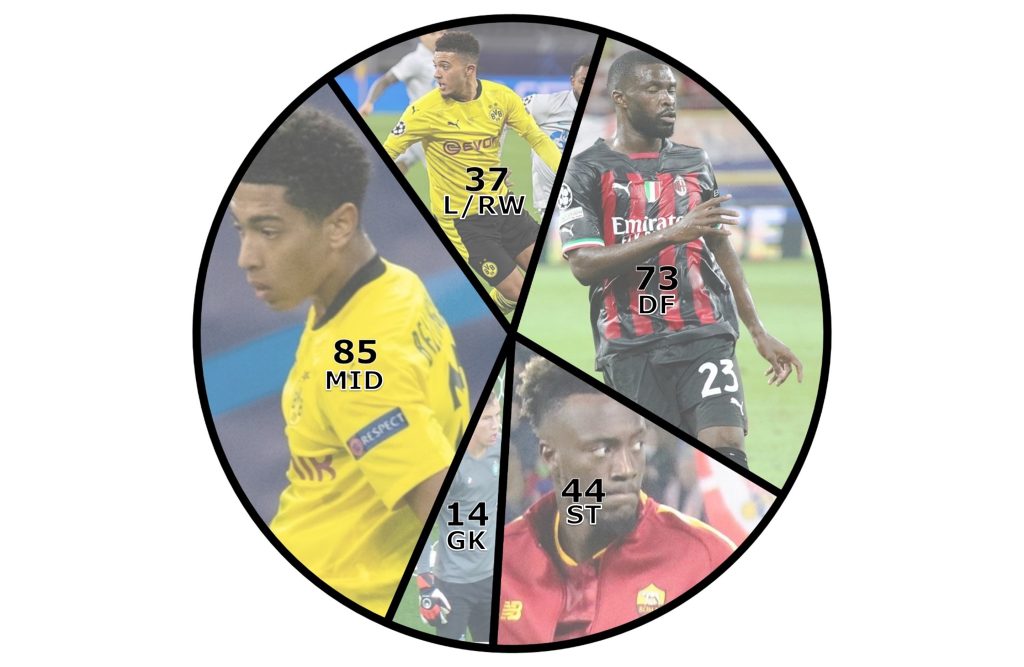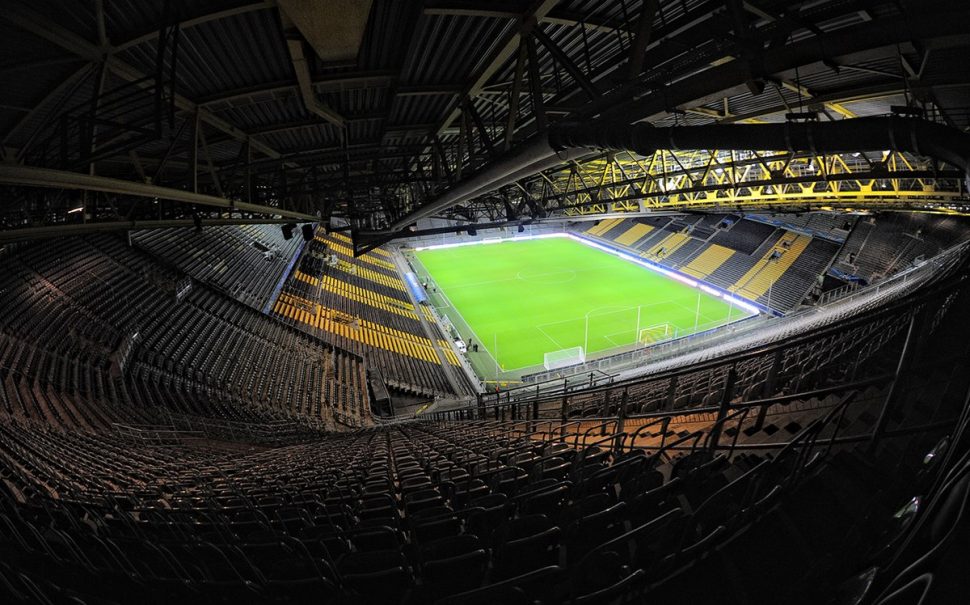In stark contrast to the status quo, which sees the Premier League as the prime destination for top-level English footballers, some of English football’s crown jewels ply their trade abroad.
The high profile exploits of two of England’s top footballers Harry Kane and Jude Bellingham, are well-documented, alongside the likes of Camberwell-born Jadon Sancho and Tammy Abraham.
And in total, 258 players who were either born in England or eligible to represent the national side play in Europe, with the most found in Sweden, who house 24.
The League Football Education ran the Erasmus+ Player Placement Program for over 10 years, which sent players out to the country in order for them to further develop their footballing careers.
Cam Melling, a journalist who specialises in covering English players abroad, indicated that this specific program is mostly to blame for the trend.
He said: “Most of those guys in Sweden are people who have stayed out there after their placement.
“Now, post-Brexit it’s a bit harder for players to head out there, and you need to be in the top three divisions to get a VISA.
“For non-league players though, the prospect of playing in such a country is very tempting.
“If getting a full-time contract here doesn’t look likely, playing some full-time football abroad, even if it isn’t at the highest level or you have to coach on top of it, can make it work.”
Interestingly, an analysis of the years that English players in Europe were born indicates that many may have departed on this search while younger, and succeeded.
As shown, a clear trend indicates that while very young and much older players, do appear abroad, it is players aged from 23-27 that are most commonly found.
Though this is the peak age for a professional footballer, it is likely that some may have arrived in countries like Sweden via charities or organisations while young, and remained into their mid-to-late 20’s.
Melling added: “In some places, even if you play in the third or fourth tiers, and with a bit of coaching on top you can earn a decent living.
“It’s just so competitive over here. Some players come back from playing abroad at a really decent level and can’t even get games in the National League or National League North.”
As there are often more of them on the pitch than any other, it’s not a huge surprise that English midfielders in Europe top the list of the most populous positions with 85 players, and defenders follow closely with 73.
The number of goalkeepers is surprisingly low with 14 – a number that includes the likes of Etienne Green and England U18 goalkeeper Charlie Setford.

More prominent names, such as Sancho, Kane or Bellingham, have had notable stints in Germany, the country that currently holds the second most English players with 20.
Current PhD researcher Ben McFadyean holds expertise on football in the nation and sees Germany’s role as a catalyst for development to be it’s pull.
“There’s been a steady flow of English talent into Germany,” he said.
“Because of the sheer volume of cash that the English game has attracted, combined with large academies, an awful lot of British-born players get stopped at youth level.
“The German clubs are in the opposite situation. Their media deal is smaller, but better distributed, which makes for a more solid base where youth is paramount.
“As they don’t have the transfer budget, with the exception of Bayern Munich, most clubs rely on their scouting young talent.
“They build up a network across Europe and beyond, looking for raw talent to bring into the country and England is one of those places.”
Where countries like Belgium have an English cohort that is made up of 25% loan players, Germany’s is as low as 10%, proving that it isn’t loans that German clubs are inclined to accept, but permanent transfers.
“German academy sides play in the third division, so the League One equivalent,” added McFadyean. “England, on the other hand, has these sorts of artificial leagues.
“The key thing is that the young players get game proper time, and that’s what a lot of them are looking for after they’ve moved.
“If you’re an 18-year-old player, say you’ve been playing with Manchester City, for example, and move over there, the salary is nowehre near as high.
“However, the difference is that as an academy player in England, you’re rarely in consideration for the first team right off the bat.
“In Germany, they’ll throw you right into the second team, which means that you’ll be playing against professional footballers.
“These youngsters, who would’ve been playing up until that point in front of small crowds, are suddenly playing in front of 20,000 fans versus historical clubs.
“German teams also aim to promote their academy players into the first team as fast as possible.
“To be jumping straight in and maybe even playing the Europa or Champions League so quickly is why the league, and not just the first tier, becomes so attractive.”
Sancho, who is currently back on loan at Borussia Dortmund, was first bought by the club in 2017 and made an impact right away.
McFadyean said: “Jadon started out this skinny little guy. It took him a certain amount of time to build up the stamina and the strength to play in the Bundesliga.
“That is the challenge. The thing with Jadon was that he always had the right attitude. He was deputy captain after a year at the club and this was because he was an absolute leader.
“At Dortmund, they look after you 24 hours a day and push you into the Bundesliga. At 17, say, you’re playing in Europe. You’ve made it, you’re there where you wanted to be.
“You can either do it or you can’t, but if you can, that can make you. Both Jude Bellingham and Jadon went from Dortmund to the England team. They might not have done so if they hadn’t moved.”
Yet, out of the 20 English players in Germany, only seven play in the Bundesliga, with a plethora of players spanning across all tiers down to the fifth.
“The standard of the Bundesliga is extremely demanding,” added McFadyean.
“Despite being a breakthrough league for loads of English players, there a quite a few who have failed as well.
“The reason they fail is often due to their mentality. If you can’t knuckle down and make an effort to integrate, then you may fail.
“If you look through the list of British players in Germany, many have left the Bundesliga for lower tiers after maybe even a single season.”
A player like Harrow-born Dapo Afolayan has benefitted from a move to a lower tier in Germany.
Having spent years with the likes of Chelsea’s and Barnet’s academies, and having enjoyed far from dazzling spells in the EFL, Afolayan made the switch to Hamburg-based St. Pauli in 2023.
The winger has notched six goals and two assists this 2. Bundesliga campaign, a total that already bests all but one of his seasons in the EFL, and he goes to show the benefits that can arise from starting afresh.
Feature image credit: Валерий Дед via Wikimedia Commons under Creative Commons Attribution 3.0 licence
Pie chart image credits:
Вячеслав Евдокимов via Wikimedia Commons under Creative Commons Attribution 3.0 licence
Supporterhéninois via Wikimedia Commons under Creative Commons Zero, Public Domain Dedication
Vyacheslav Evdokimov via Wikimedia Commons under Creative Commons Attribution 3.0 licence
Werner100359, Werner100359 via Wikimedia Commons under Creative Commons Attribution-Share Alike 4.0





